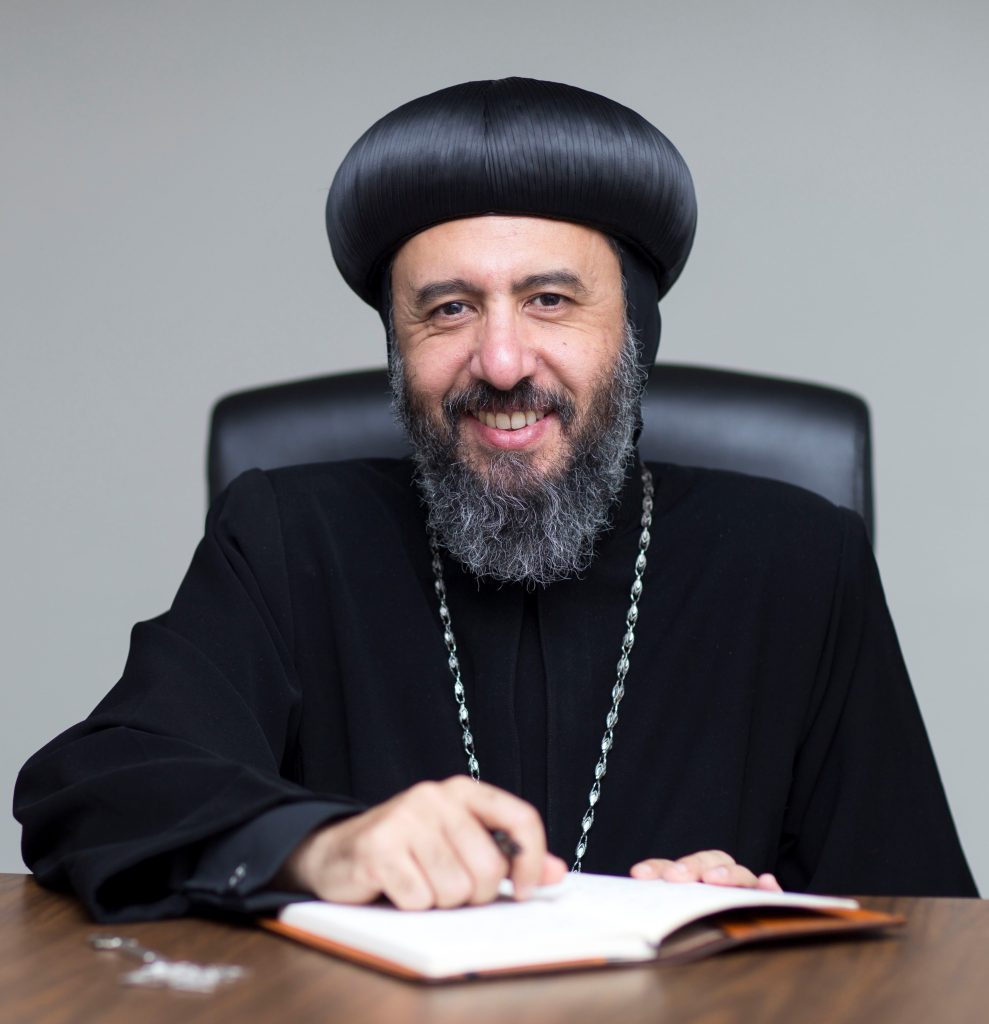
His Eminence Archbishop Anba Angaelos is the first Coptic Orthodox archbishop of London. The following post is based on his remarks during the panel “Religious Perspectives on Religious Freedom and Peace” at the ICLRS 31st Annual International Law and Religion Symposium, 8 October 2024.
In the book of Isaiah, the prophet declares, “The Spirit of the Lord is upon Me, Because the Lord has anointed Me to preach good tidings to the poor; He has sent Me to heal the brokenhearted, To proclaim liberty to the captives, And to open the prisons for those who are bound” (Isaiah 61:1). This is not just the role of religious leaders; this is the role of every person.
The reality, despite many narratives shared around the world, is that faith and religion matter. As others at this Symposium have discussed so eloquently, 80% of the world’s population sees itself as having some sort of religion or belief and regards it as important. I have had the privilege of being born in Egypt, raised in Australia, and then serving for almost 30 years in the United Kingdom. In these different contexts, religion and religious freedom are experienced differently. In some parts of the world, religion is something that can be compartmentalized, something we put in a box and refer to only at times. But in other parts, it is an indistinguishable part of one’s identity and day-to-day life, and to be denied it is to be denied part of one’s actual identity.
Twenty-five years ago, I became a bishop in the UK and began to engage with religious freedom issues, speaking firstly for Coptic Christians persecuted in Egypt. Then, as uprisings occurred across the Middle East, I began speaking for our Christian brothers and sisters across the region. As the world has fallen into greater and greater conflict, I have seen the necessity of advocating for friends, brothers, and sisters of all faiths and none around the world: the Rohingya in Myanmar, the Uyghurs in China, the Yazidis in Iraq, the Bahá’ís in Iran, and Christians in Nigeria, across Sub-Saharan Africa, the Middle East, and around the world.
This problem is greater than any individual person, institution, church, religion, or even nation-state. It requires collaboration, and this is why we are here. We are here because there is a well-known metaphor of a canary in the mine; once we recognize religious and faith persecution anywhere in the world, it assures us that other forms of persecution will follow. Religion is just a starting point—a convenient and simple, soft target to begin with. But once religious rights are compromised, compromise of other rights will follow. With my utmost respect for and recognition of Article 18 of the Universal Declaration of Human Rights, I affirm that the right to human dignity and the sanctity of life is one sanctioned by God Himself in the book of Genesis and across our religions and beliefs. It is enshrined in international law and advocated for on international platforms, but it is a necessary and inextinguishable human right granted by God Himself.
In the United Kingdom, we are blessed to have a wonderful freedom of religion or belief (FoRB) network. One important aspect of the right to freedom of religion is that none of the related issues is completely local or even regional. As we see around the world, these issues are sometimes products of geopolitical pressures and conflicts. Moreover, we see that members of faith communities, particularly women within those communities, become doubly or multiply persecuted due to these circumstances. They become even smaller minorities within the already small minorities where they are located. Therefore, it is important for us to collaborate. This is not a luxury; it is not an option; it is a necessity.
Nelson Mandela said that our judgment will be the world we commit to our children.[1] I know that the world we have received is slightly worse than the one our parents received. And I fear that the one we are going to hand over could be significantly worse if we are not aware and alert to the challenges.
To relay our experience as a church with persecution, rather than falling into a state of victimhood, which is debilitating in and of itself, I established Refcemi, the Coptic Orthodox Office for Advocacy and Public Policy. The word refcemi in Coptic means “advocate.” To give some context: After Islam entered Egypt in the seventh century, relations were amicable for the first few centuries. Then there was a purge of Coptic culture, a genocide. One of the elements of that genocide was eradication of the language. So to now have a Coptic word become the title of an office for advocacy activities in London that advocate for people of all faiths and none is testimony not only to the resilience of my community but to the resilience of faith communities around the world.
I close with scripture, as I started, with a testimony to our own experience, but also to the experience of faith communities around the world. It comes from St. Paul’s Second Epistle to the Corinthians, chapter 4, verses 8 and 9: “We are hard-pressed on every side, yet not crushed; we are perplexed, but not in despair; persecuted, but not forsaken; struck down, but not destroyed.”
Reference:
[1] Nelson Mandela, Address by Nelson Mandela at Luncheon Hosted by United Nations (UN) General Secretary Kofi Annan, New York – United States, Nelson Rolihlahla Mandela (last visited 4 July 2025), http://www.mandela.gov.za/mandela_speeches/2002/020509_kofi.htm (“History will judge us by the difference we make in the everyday lives of children.”).
